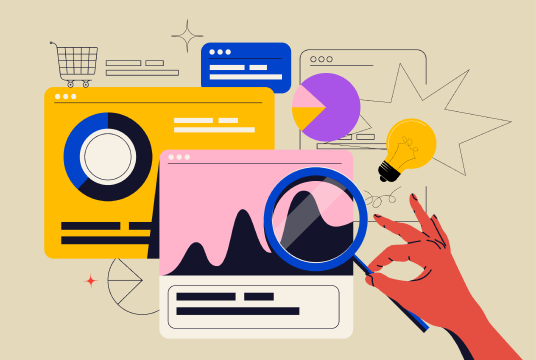Google Adopts Metadata Standards for AI-Manipulated Images

Google has adopted metadata standards for images that have been manipulated by artificial intelligence (AI). Find out more information here.
Key Takeaways
-
Google has now adopted metadata standards for images that have been manipulated by artificial intelligence (AI).
-
Additionally, Google has removed the “AI-generated” metadata from Beta status because it is now fully supported by Search.
-
The presence of metadata in images can provide detailed information, such as licensing and image descriptions.
Google Search Central, in its updated documentation, reveals that Google can now label images that are developed or manipulated by artificial intelligence (AI).
Furthermore, Google has also removed the “AI-generated” metadata from beta status because that label is now fully supported by Search.
Image Metadata on Google Images
Google's documentation reveals that when you specify image metadata, Google Images will show more details about who created the image, how users can use it, and related credit information.
For example, when an image has licensing information, it will receive a "Licensable" label, include a license link, and provide further details on how users can use the image according to its license.
Regarding image metadata standards, the International Press Telecommunications Council (IPTC) is responsible for setting them.
Image metadata is important for providing image descriptions and copyright information. Although IPTC is an international press standards organization, the metadata standards they develop are now used by Google Images in addition to Google News.
Image Metadata and AI Manipulation
Google has adopted metadata standards for images manipulated by artificial intelligence, including Convolutional Neural Networks (CNN) and Generative Adversarial Networks (GAN).
In this latest metadata update, there are two types of AI image manipulations supported by Google: inpainting and outpainting.
Inpainting is the process of reconstructing or restoring an image by filling in missing parts. This process also includes algorithmic manipulations that add elements to the image.
Outpainting is an algorithmic process that adds assets to an image beyond what is in the original and extends it beyond the original boundaries.
For both types of manipulations, Google can support their metadata with compositeWithTrainedAlgorithmicMedia.
However, this property is only available in beta versions and IPTC image metadata. Adding digital source properties such as compositeWithTrainedAlgorithmicMedia, compositeSynthetic, and trainedAlgorithmicMedia makes your images eligible for the AI label, although it may not be immediately visible to users as it is still under development.
News Sources
As a dedicated news provider, we are committed to accuracy and reliability. We go the extra mile by attaching credible sources to support the data and information we present.
- Google Search Central - https://developers.google.com/search/docs/appearance/structured-data/image-license-metadata?hl=id#iptc-photo-metadata
Alivia Ariatna
As an experienced SEO content writer, I specialize in crafting compelling, keyword-optimized content with extensive research on it. I stay updated with the latest SEO trends and best practices to ensure my content meets both user intent and search engine requirements.
Another post from Alivia
Is ChatGPT Perceptive to Indonesian Writing Rules? A Study
Thu 30 Jan 2025, 08:55am GMT + 7Google Releases Documentation on Google Trends Guide
Mon 04 Nov 2024, 08:22am GMT + 7Google to Remove Sitelink Search Box by November 21, 2024
Fri 01 Nov 2024, 08:39am GMT + 7Google Wins Nobel for AI Research, Sparks Debate in AI Field
Wed 16 Oct 2024, 11:42am GMT + 7More from cmlabs News your daily dose of SEO knowledge booster
In the development of its latest search engine, Bing has partnered with GPT-4 to deliver the most advanced search experience. Here are the details.
Bard, an experimental conversational AI service, combines information with language model intelligence. Check out the details here.
With the rapid advancement of AI technology, major search engines like Google and Bing are now equipped with their respective generative AI. Here is the detail.
WRITE YOUR COMMENT
You must login to comment





All Comments (0)
Sort By